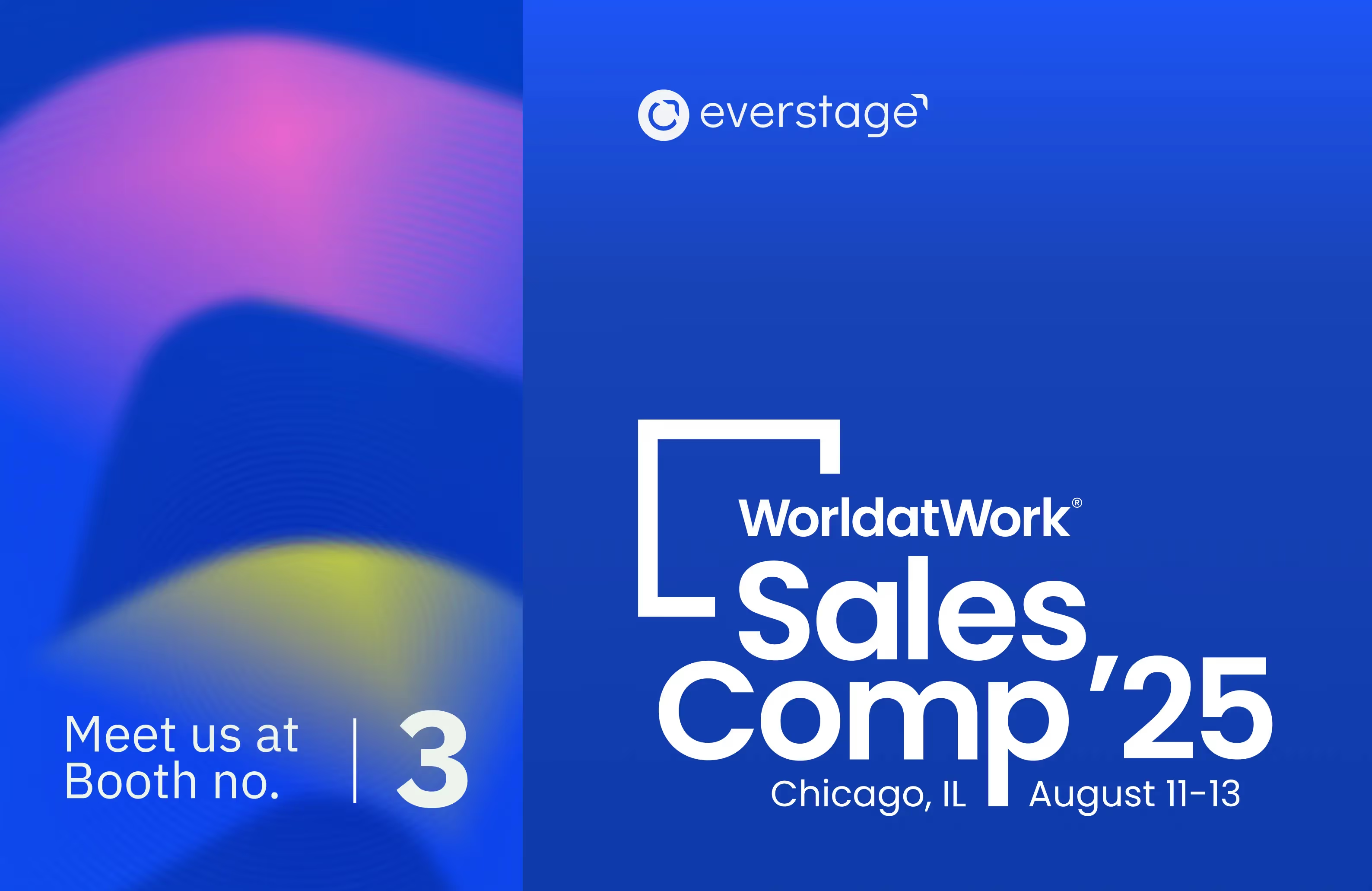In the fourth Uncappd AMA, we chatted with Saxton Archer, Director, Sales Compensation at SOCi, on being strategic in Sales Compensation, Consumption-based model, communication strategies, and boosting retention!
Ranjuna Sajeevan[Uncappd]:
Hey everyone! Here we’re again, with the fourth edition of Uncappd AMA!
Today, we’ve got Saxton Archer, the Director of Sales Compensation at SOCi to answer all your Sales Comp questions! We’re super thrilled to have you with us today, Saxton!
Saxton Archer: Thank you Ranjuna, very excited to be here! Welcome everyone! Let the questions fly
Siva Subramanian [Uncappd]: Thanks for joining us for the AMA, Saxton. This is going to be exciting!
Ranjuna Sajeevan [Uncappd]
Awesome! The topics for the day are:
* Creating strategic value in your role
* Managing sales compensation in a consumption-based model
* Choosing the right sales compensation tech stack
* Best practices for cross-functional collaboration
* Strategies for effective communication with sales reps
Got questions for Saxton? Please feel free to share it across here. We’ve got some excellent questions already
So…let’s get started
Ranjuna Sajeevan [Uncappd]
Here’s our first question @Saxton Archer: What key skills should a sales compensation professional develop to become a strategic partner within the organization?
Saxton Archer:
Great question! I have found one of the most important skills to develop as a sales comp professional is the ability to identify valuable insights from your data analyses. Most of us can put together a data model highlighting the issues that our leadership teams would like to see, but the best sales comp people are able to interpret that data into actionable insights and tell a story around that data. Don’t just send a spreadsheet…speak on what the data is telling us and give suggestions on what to do from there.
This is especially important for people early in their sales comp career. What a great way to show your knowledge in the space and create value for the business!
Also get very comfortable presenting in front of people. A lot of our time is spent in spreadsheets or in tools, but more and more we are needed in strategic meetings presenting to leadership teams. It's very important to be able to put your discoveries and insights into words.
Joao Samoza: Hello Saxton, great to have you here! On effective communication with sales reps, have you seen any recent creative/new ideas that picked your attention on Sales comp cascades to improve the understanding of the field on key comp changes and elements?
Saxton Archer:
I cannot overstate how important it is to work cross-functionally with your sales enablement team on communication cascades for sales reps/managers. Most times, they have a pretty well established process in place and already have the attention of sales reps. If you don't have a robust sales enablement team, I've found that recorded live sessions with buy-in from sales leaders are the best way to get peoples' attention. It's a way to connect with the sales reps and provide the opportunity to answer questions as they come up. Not necessarily super creative, but effective.
Yusuf El-Hafy: Saxton, can you speak to some of the major nuances between managing compensation in a consumption-based model vs subscription?
The biggest difference is obviously committed revenue vs. revenue as customers use a service. Much easier to build plans and incentives around revenue we know will be coming in. With consumption-based models, it's not as simple and you must know more about the customer profiles to plan for territory and quota management. I've found you have to be more flexible as a sales comp team within a consumption based model as the business changes more rapidly. The difficult part is being flexible but not changing regularly enough that the sales teams become confused about how they're paid. It's a delicate balance for sure.
In addition, there is less emphasis on the type of deal with a consumption-based model. Subscription services are broken out into new business, renewal, etc. and those mean very different things for the business. In a consumption-based model, it's not nearly as important to build incentives around those different types of deals. Revenue is revenue and we need to keep that in mind as the main driver in consumption-based models
Shane Tullis: Hi Saxton Archer! Here's one that I enjoy answering. Of course naming no names, what's the largest conflict you have had where you have a completely different opinion than the CRO / Sales Head?
Saxton Archer:
This is a fun question, and I've been at a lot of different companies so this feels pretty anonymous. The biggest conflict I've had is around decelerators. We can have conflicting opinions, but I am highly against decelerators as a main component in a comp plan. It's highly demotivating and adds noise to something that should be simple and positive. Remember, we are designing incentives! Anything we're trying to solve with decelerators can usually be addressed with performance/people management, not the compensation plan.
Milagro Maltez: Hi Saxton Archer, I´m looking for best practices when I have sales reps quoted with one revenue target that includes a portfolio of a variety of products, but I want them to focus more on those products that represent "good revenue" for the company because they bring higher profitability for example, what's the best practice to achieve this without adding more plan components?
Saxton Archer:
I've seen a lot of businesses try to build separate quotas around these high value products. This creates a lot of confusion for the sales reps and makes it more difficult for us to track true overall performance. I've found success with adding in multipliers or kickers for those specific high value products. Of course this is easier to do in a subscription based model. Would love to hear how other people have addressed this topic as well!
Milagro: I agree that build separated quotas can be confusing and more difficult to track, and that's what I want to avoid, it should be simple to understand and align with the business objective
Saxton Archer:
Absolutely! I've also seen businesses build in gates to accelerators. Meaning a rep would need to hit a revenue target within a specific product before they would be eligible for accelerators on their overall target. I don't think this is the best approach though as you can have very high performers not reach accelerators when they should be reaching those big payouts for their efforts. You could have a rep retention issue at that point.
Milagro: Right! I don´t think that would be very popular either, so maybe being eligible to President's club if that revenue target is achieved on top of the overall target, that won´t be directly impacting their commissions but another motivator
Saxton Archer:
This is a great idea! Although I think you would likely have some loud sales leaders at the end of the year if one of their top performers wasn't able to go to president's club because they didn't hit the product target. Back to my response regarding decelerators, I think it's always important to think about adding incentives rather than taking away. In this case, I still believe a multiplier or kicker for a high value product would be the best option (without more knowledge about the business)
Ranjuna Sajeevan [Uncappd]We’ve a question from @Geraldine Curtis: Would love to know what big tech companies are doing to incentivise large/mega deals. Are they including the deals in quota retirement and paying out of OTE, or looking at special payments, or looking at a tiered model linked to revenue tiers. And if special payments, would love to understand some models.
Saxton Archer:
I actually feel like the bigger tech companies are willing to pay on big deals using normal quota retirement and paying accelerators if applicable based on the comp plan. The smaller companies tend to be a little more risk averse and build in special policies regarding large deals that may have holds on commissions or pay at decreased rates (or caps). If your business has the ability to follow the comp plan even when large deals come in, that is my first recommendation. I never recommend caps unless the business is relatively new and you don't feel comfortable with the quota setting process. The only other thing I would support is a hold on commissions for large deals until you feel confident that the deal is legitimate and the customer has proven their commitment to paying the commitment.
Jordan Wong: What's your ideal sales comp stack for a software company comping on bookings and revenue? What are your favorite ICMs at the moment, and why you feel that way?
Saxton Archer:
I love this question! I'm big on tech stacks within sales comp. The future of sales comp is automation, and there's really no way around that. Either you get on board or you will be left behind.
I've used a lot of different ICMs and there are even more I haven't used. Without bad mouthing any ICMs specifically, my favorite thus far has been CaptivateIQ. They have built their platform using formula logic which we're all used to as sales comp professionals. This makes it very easy to build new components yourself and manage the tool without the need for managed services. All other tools I've needed managed services unless you have a specific person with extensive experience in that tool.
Like I said, there are a lot of tools I haven't used before...so take this recommendation with a grain of salt.
Yusuf El-Hafy: What is the best way to ensure that the Sales Comp team has enough resources? Do you typically look at a Sales Rep to Sale Comp employee ratio? or does it depend on how manual the process is? At what point should we grow the Sales Comp Team?
Saxton Archer:
This is a really good question as well. In my experience I've seen about one sales comp professional for every 100-150 commissionable employees. I've been at companies where those ratios have been higher, but we were pretty overworked and weren't able to provide the insights the business needed because we were so focused on the general maintenance. If you have a robust tech stack in place that is automated, I would feel comfortable pushing that ratio up to 200-250. But this is assuming you have at least one person who is expert level in the tool.
Brian Le: How do you think about comping multi-year deals? What happens when there are step-ups in the outer years? Do you pay on year 1 ARR, total contract value, or take the average of the contract length?
Saxton Archer:
I am actually working on this at SOCi at the moment! We have kickers built in for multi-year deals that pay an additional % on any 2 or 3 year deals. This has been the most effective way I've seen multi-year incentives designed. I've also seen ARR multipliers for 2-3 year deals, but I've found this confuses reps and causes an influx of questions/concerns come in vs. the simple additional % paid on top of normal commission rates.
For step ups, I would suggest the average ARR over the course of the term length. I don't like to build in incentives that create multiple payouts over the course of a year. It adds complexity to the calculation/tracking process for the sales comp team and I believe reps should be rewarded when they complete their job at signing. If reps are signing bad deals that are not reaching full commitment, I believe this is a people management issue as well as potentially an enablement issue. I don't believe this should be solved with a compensation plan.
Erin Sanor: Hi Saxton, thank you for sharing your expertise with us. One challenge for my team is how much focus to put on churning customers. Is customer retention a lever you've incentivized? How have you measured in a scalable way?
Saxton Archer:
Customer retention is high on our list of things we're trying to solve at the moment. I do believe it's very important and should be addressed via sales comp plans. I also believe most companies still struggle with this issue. To be honest, I've never seen a perfect way to carry this out. The first step is to determine role responsibilities. If you have AEs focused on retention, they should have a retention component in their plan (or some type of SPIFF at the very least). If you can assign a book of business and easily track account movements, then a simple up-for-renewal number would be the denominator, and the ARR renewed would be the numerator. We typically pay this out on a quarterly basis. I could talk about this topic in length, so happy to discuss more outside of this session.
Erin Sanor: What advice or lessons learned would you give a team who is considering making the transition from a spreadsheet based compensation administration process to a compensation system?
Saxton Archer:
The implementation is very important to get right the first time. You don't want to be in a situation where you've gone through implementation but are not fully up an running all or the majority of your calculations in your new tool. Ensure you're documenting everything about your manual process, the data inputs, and expected outputs right now. I would also suggest assigning someone on your team who knows the plans in and out to the implementation. If you're able to take things off their plate to focus on the implementation for the next 3ish months, I cannot suggest this enough. It's a very extensive process and for some implementations can be a full or half-time job for that person. I've seen teams try to divvy up the work of the implementation between their team members, but the most success I've seen is having that dedicated person while the other team members help out with that person's other work. It's all worth it I promise!
Ranjuna Sajeevan [Uncappd]
And with that, we’ve come to the end of today’s AMA. Thanks again, @Saxton Archer, for joining us, and to everyone who participated.
Saxton Archer:
Thank you all! A ton of great questions and feel free to reach out directly if you have any follow-ups












